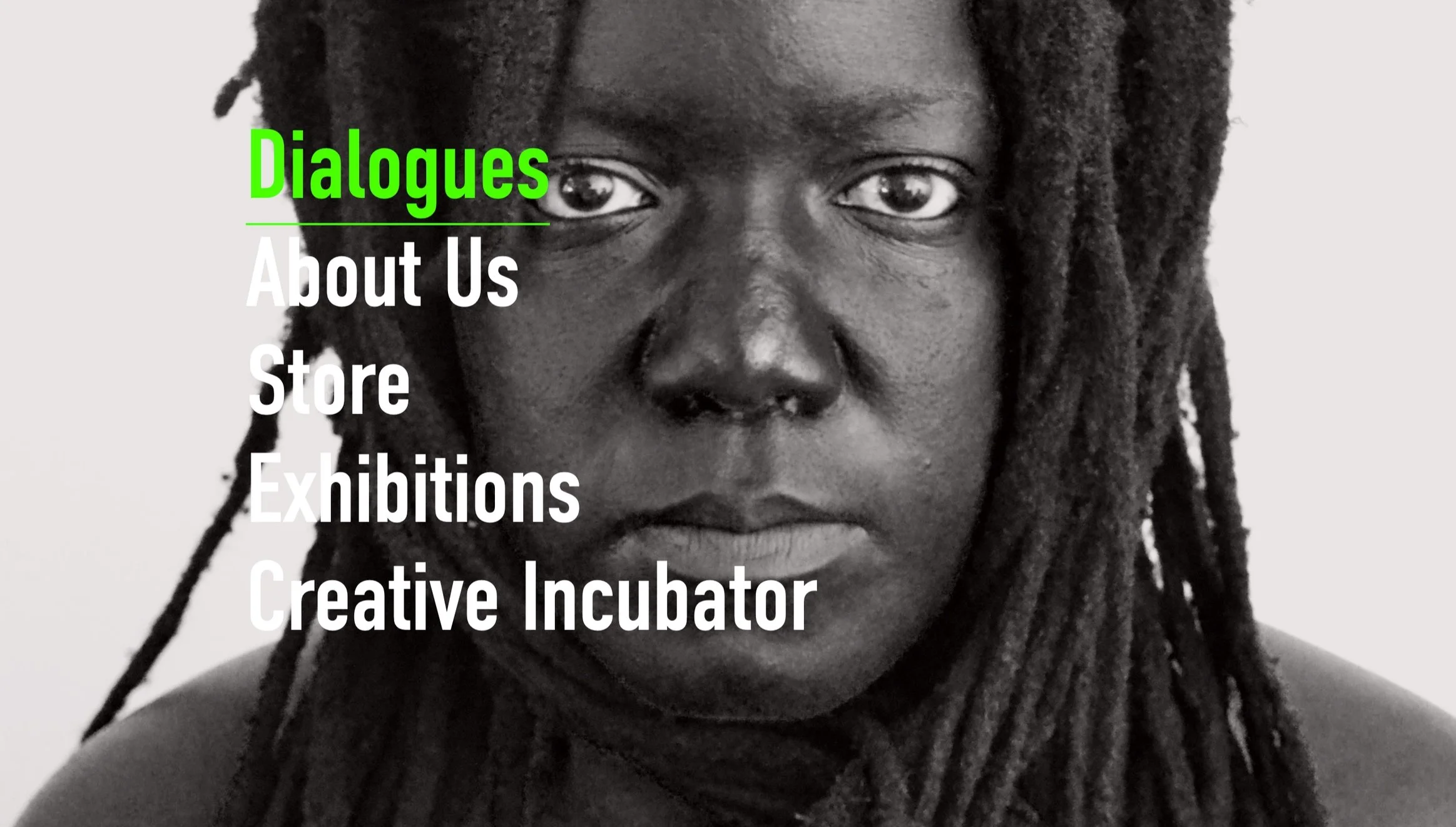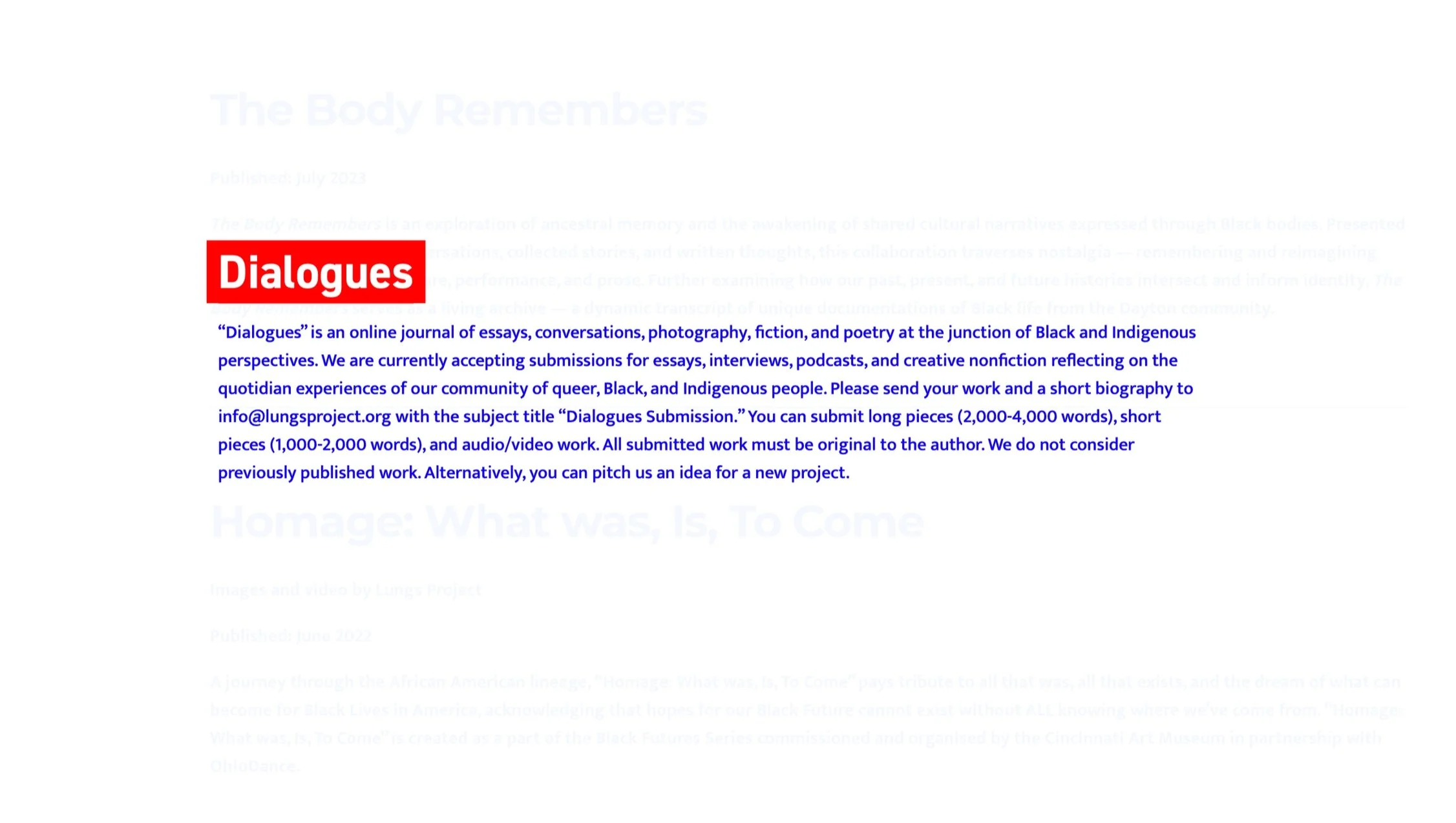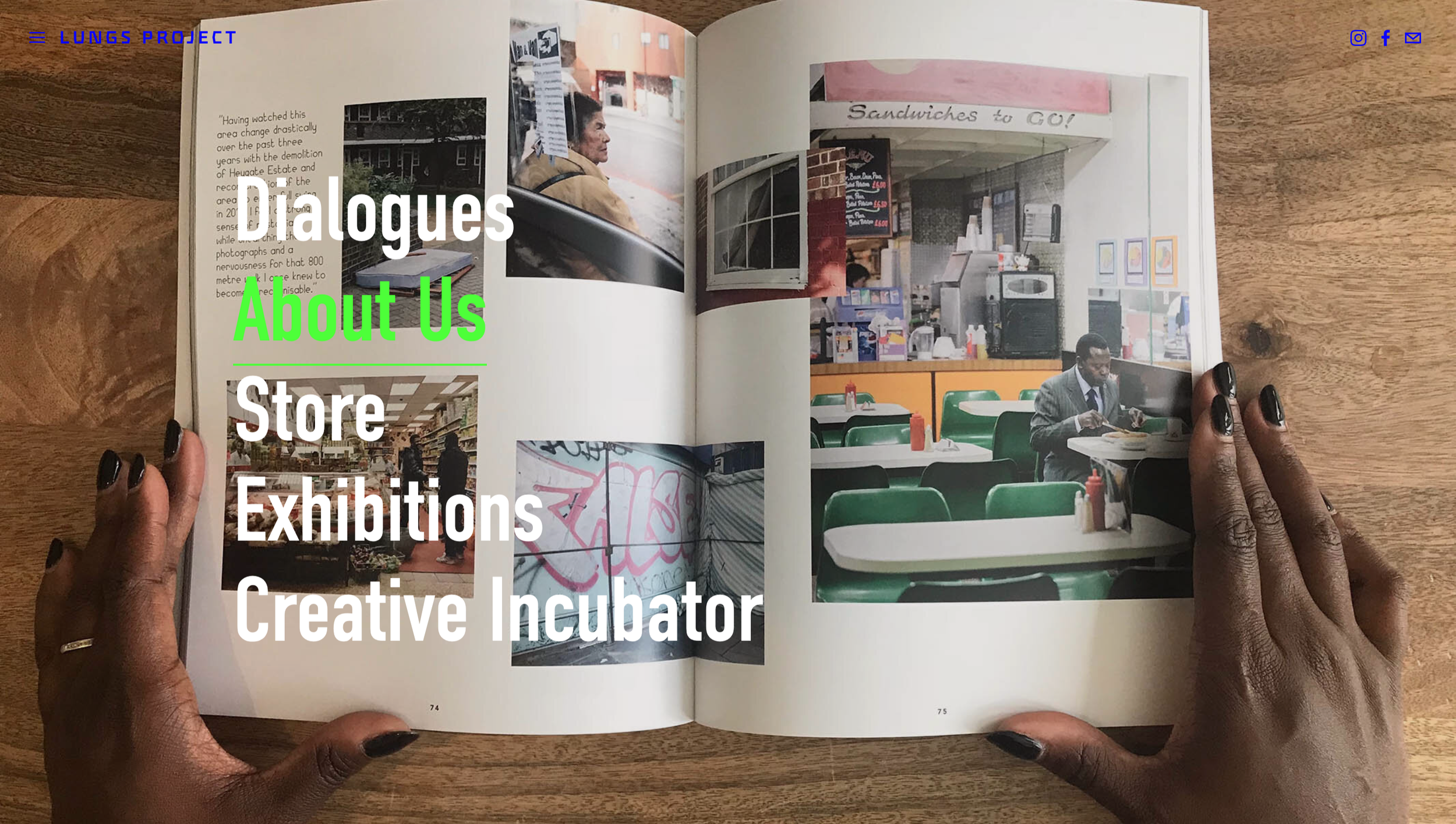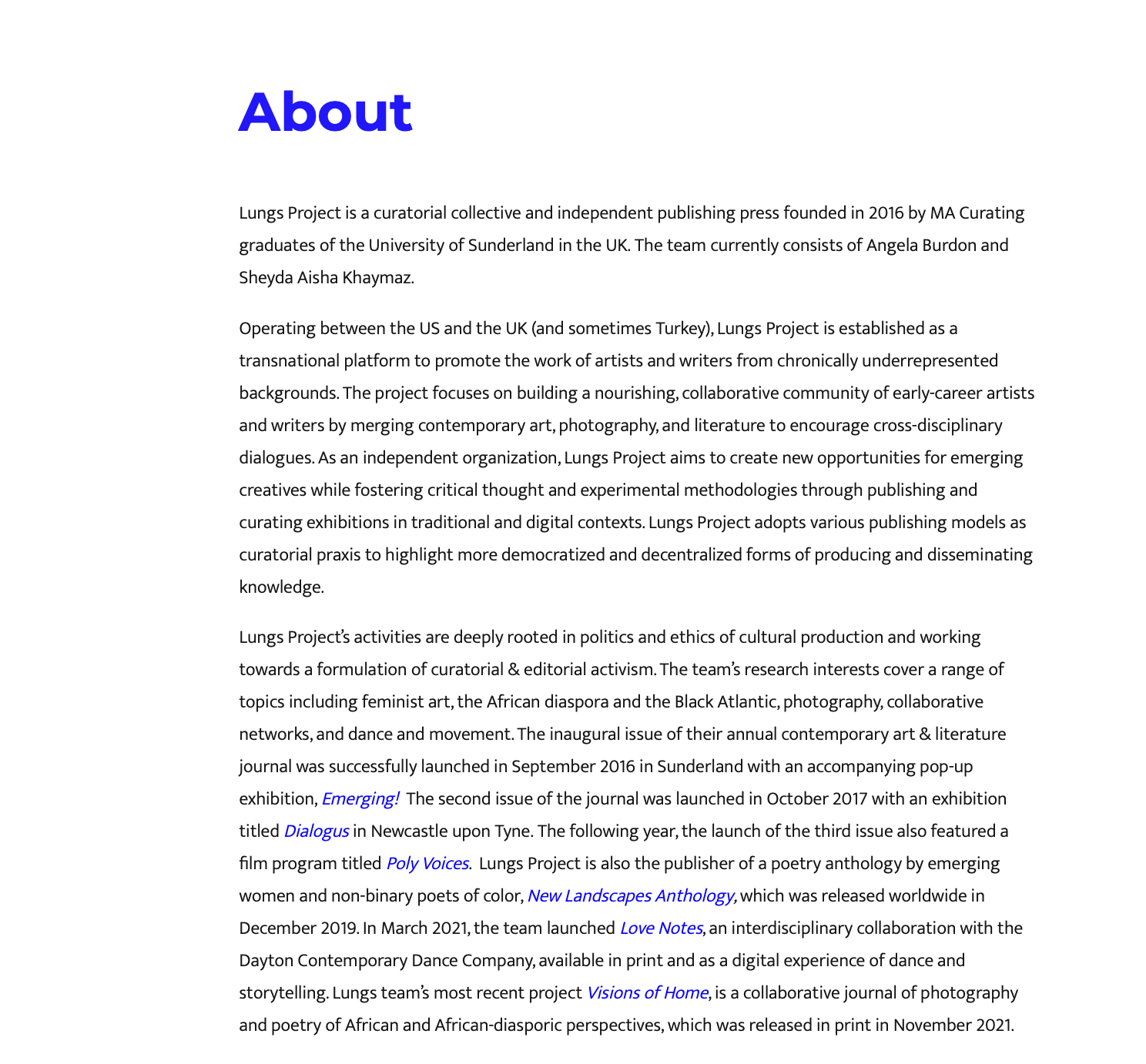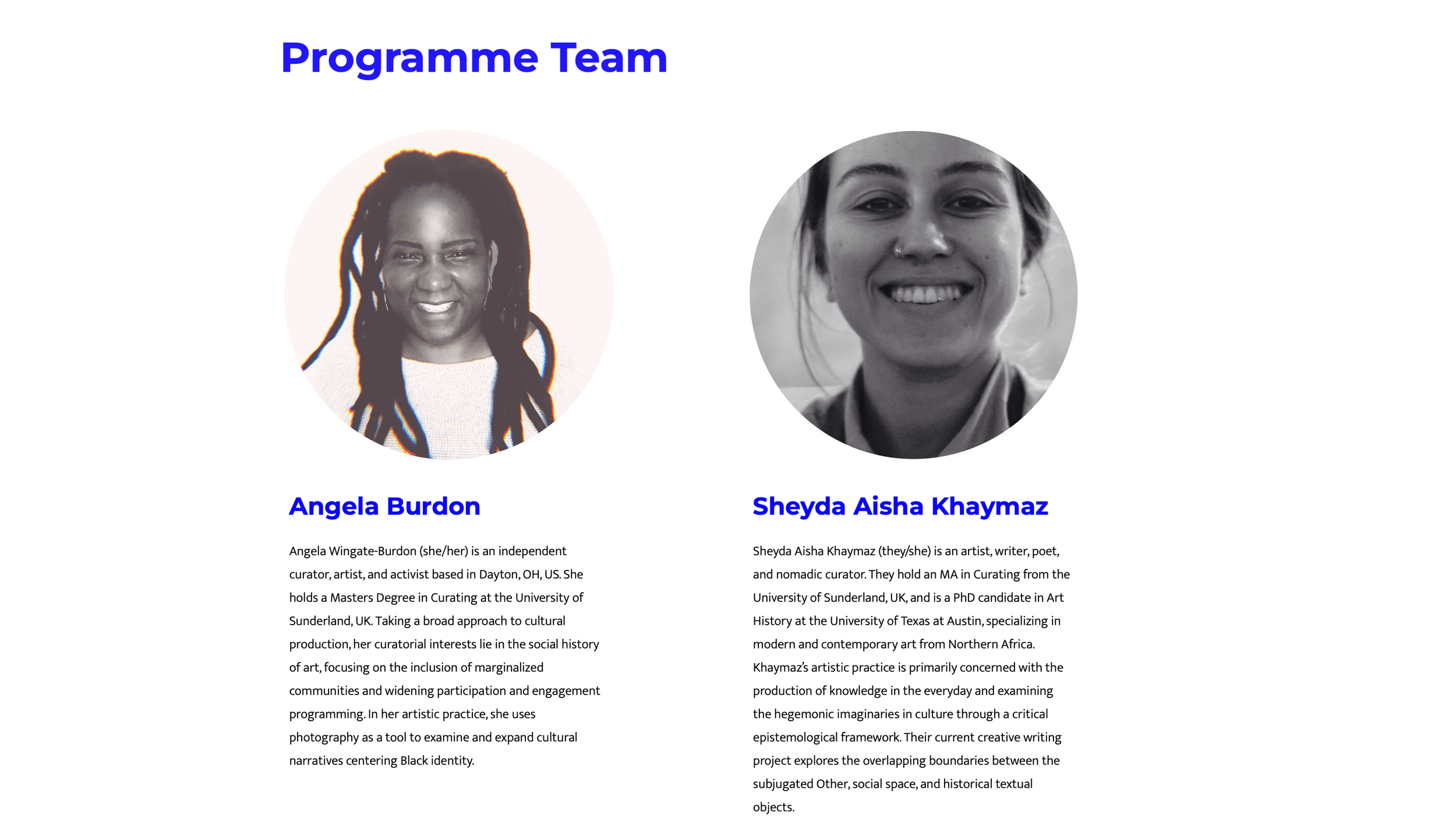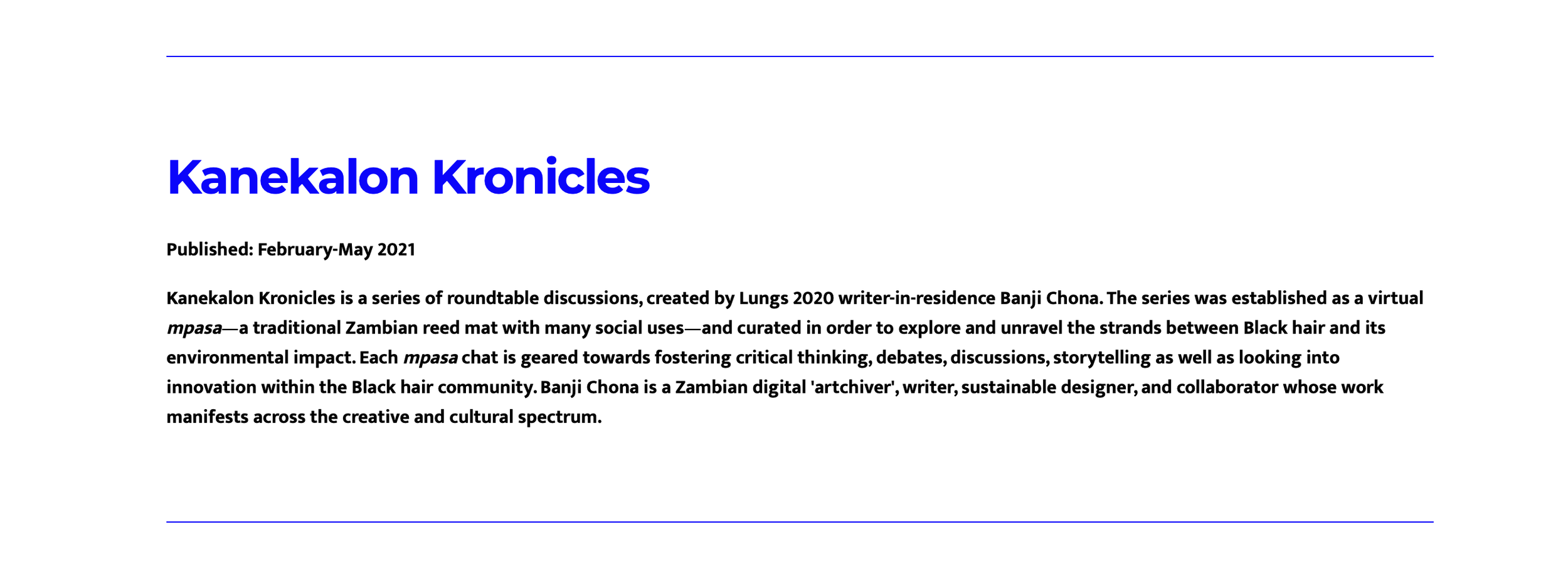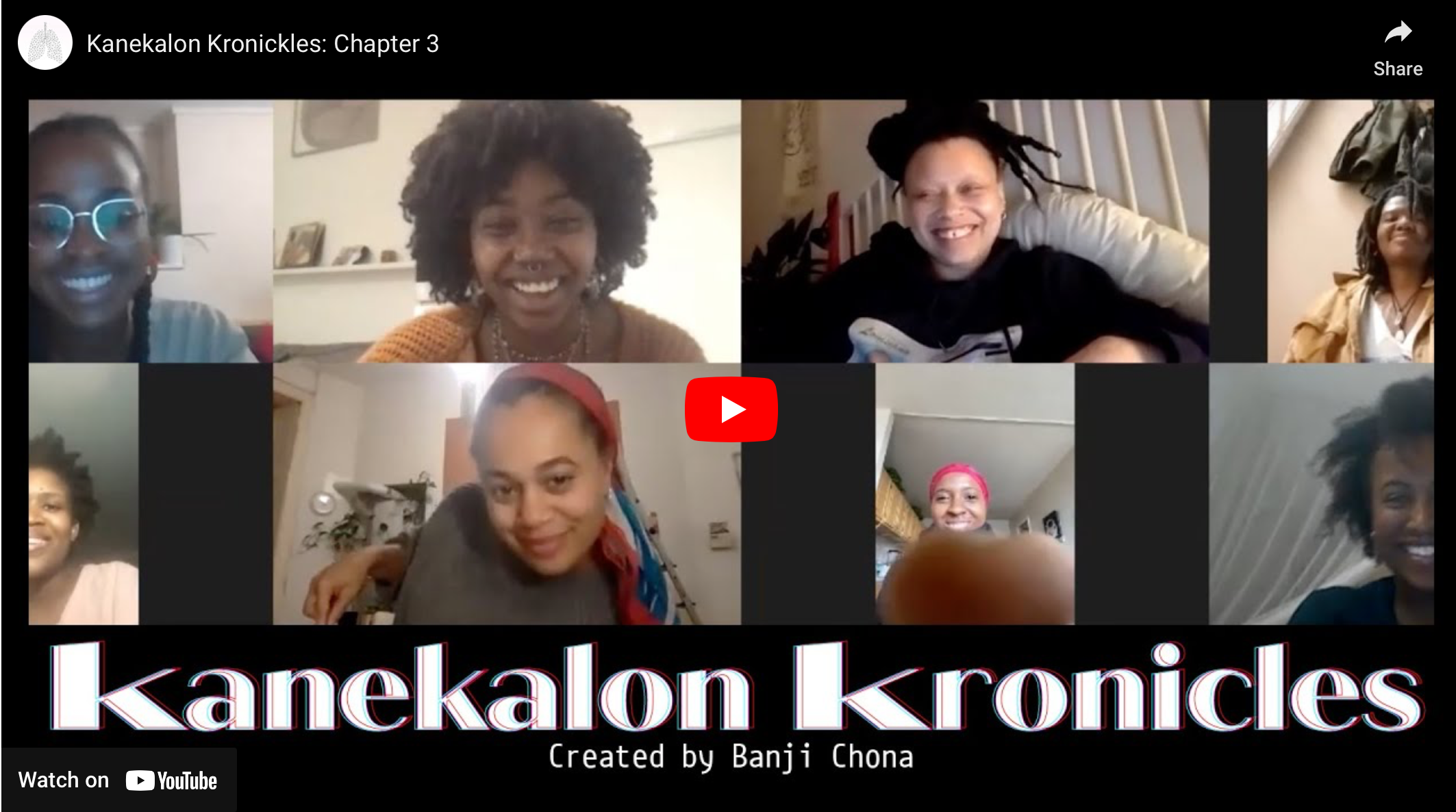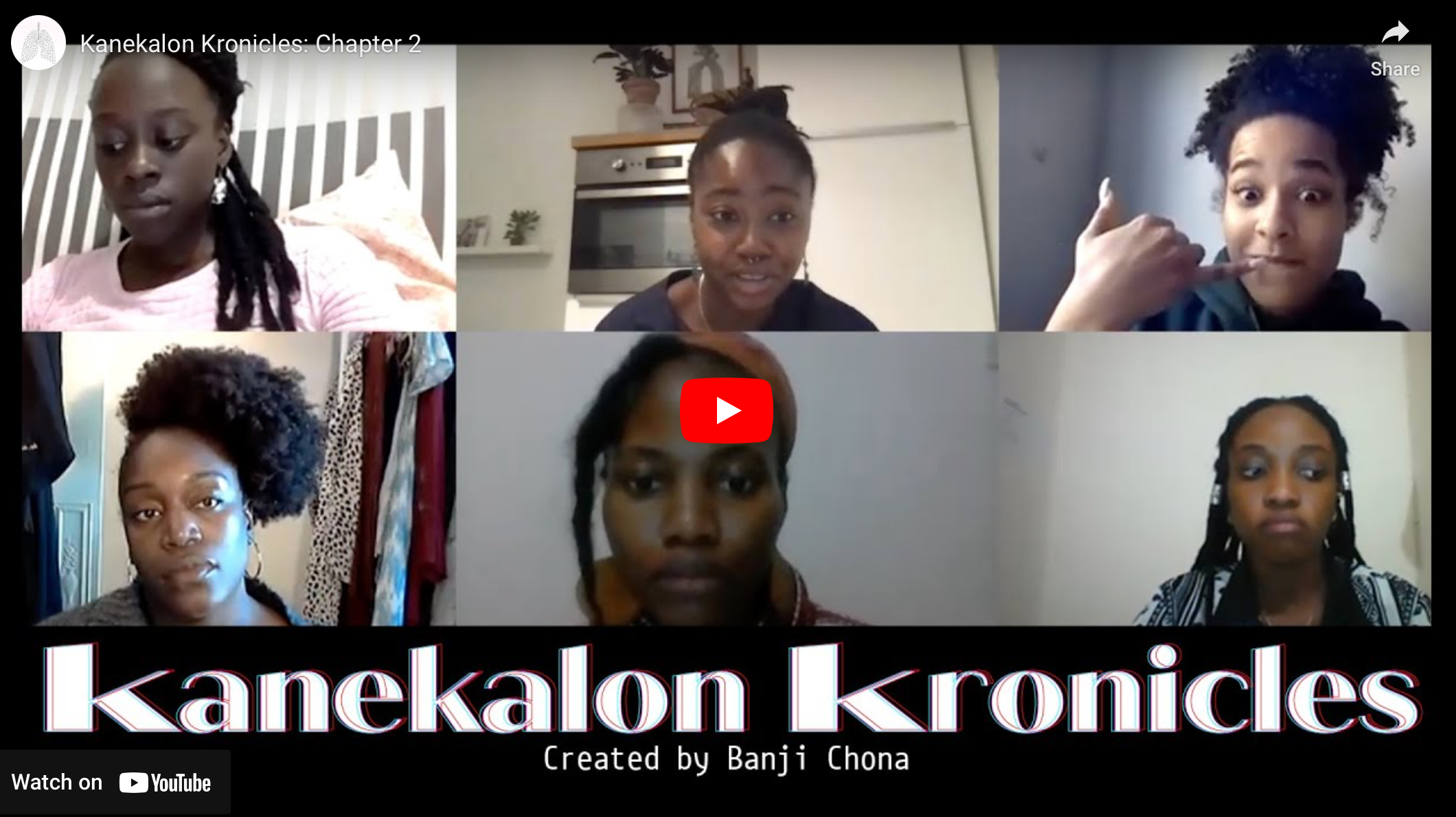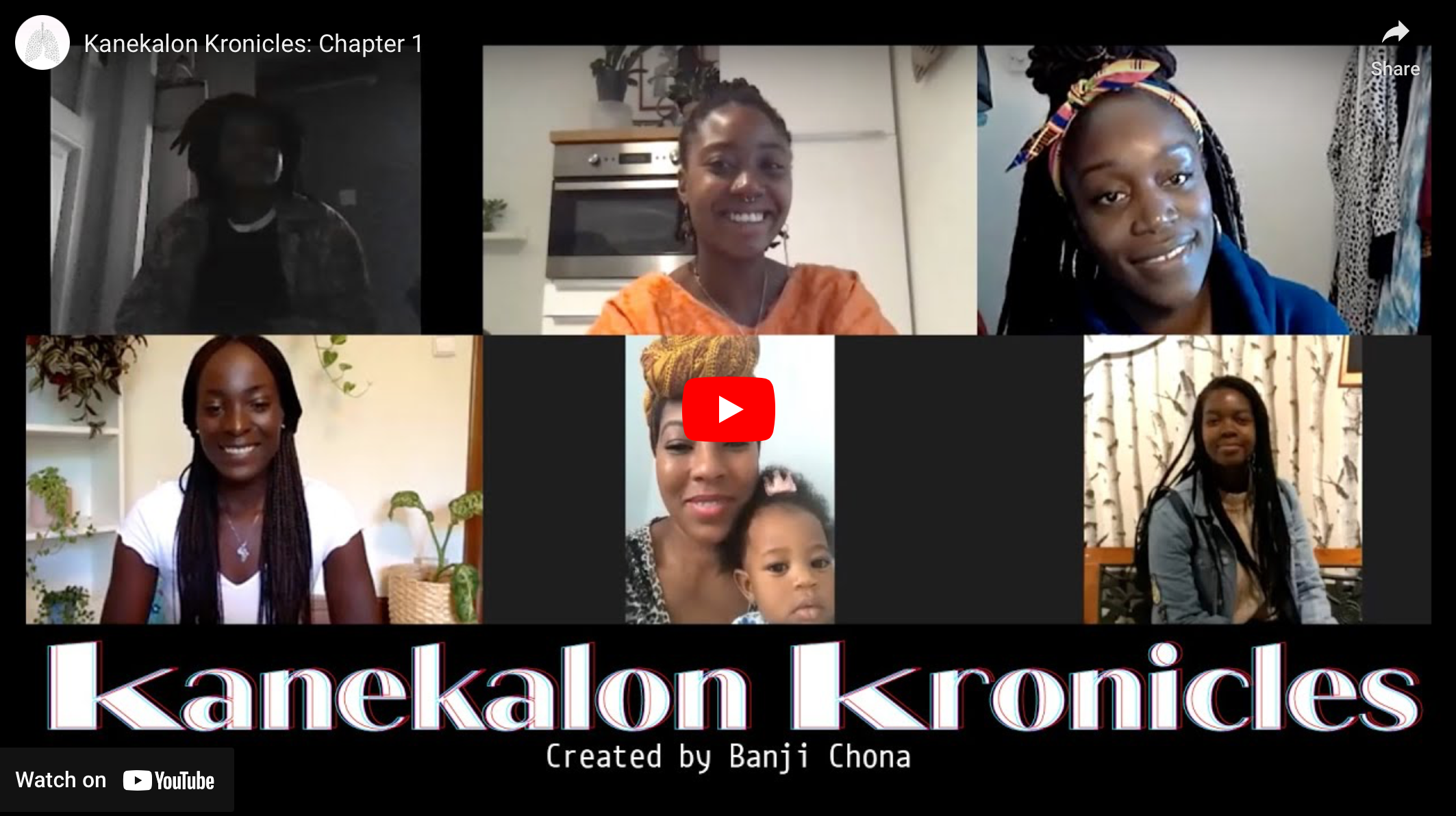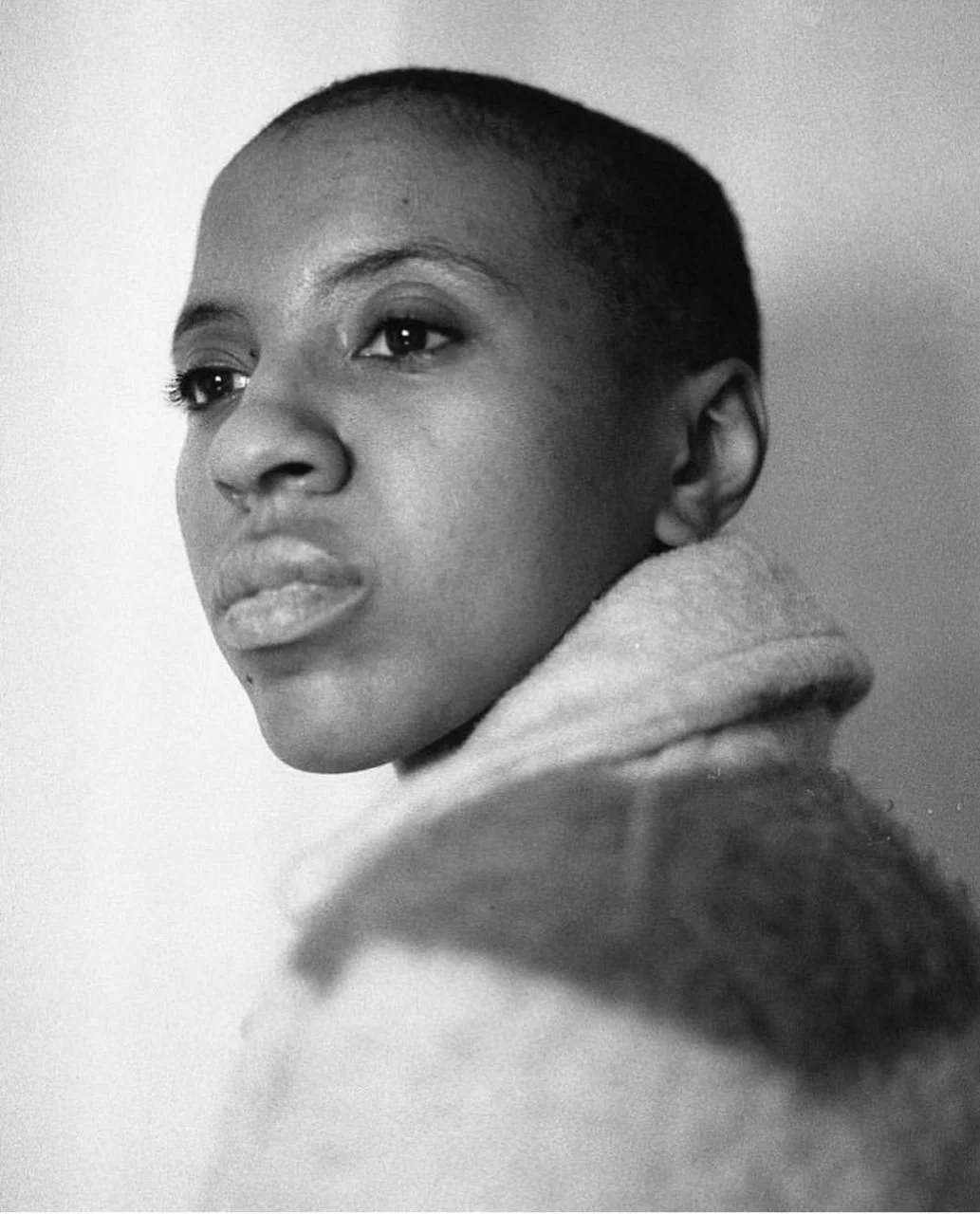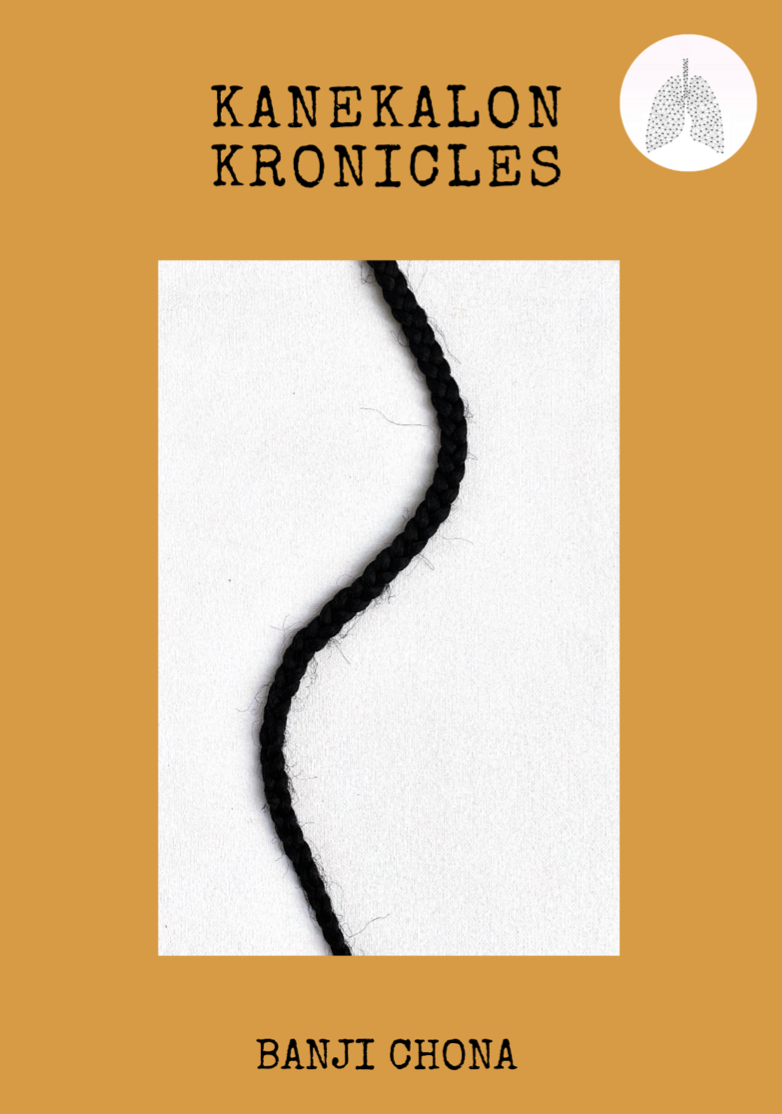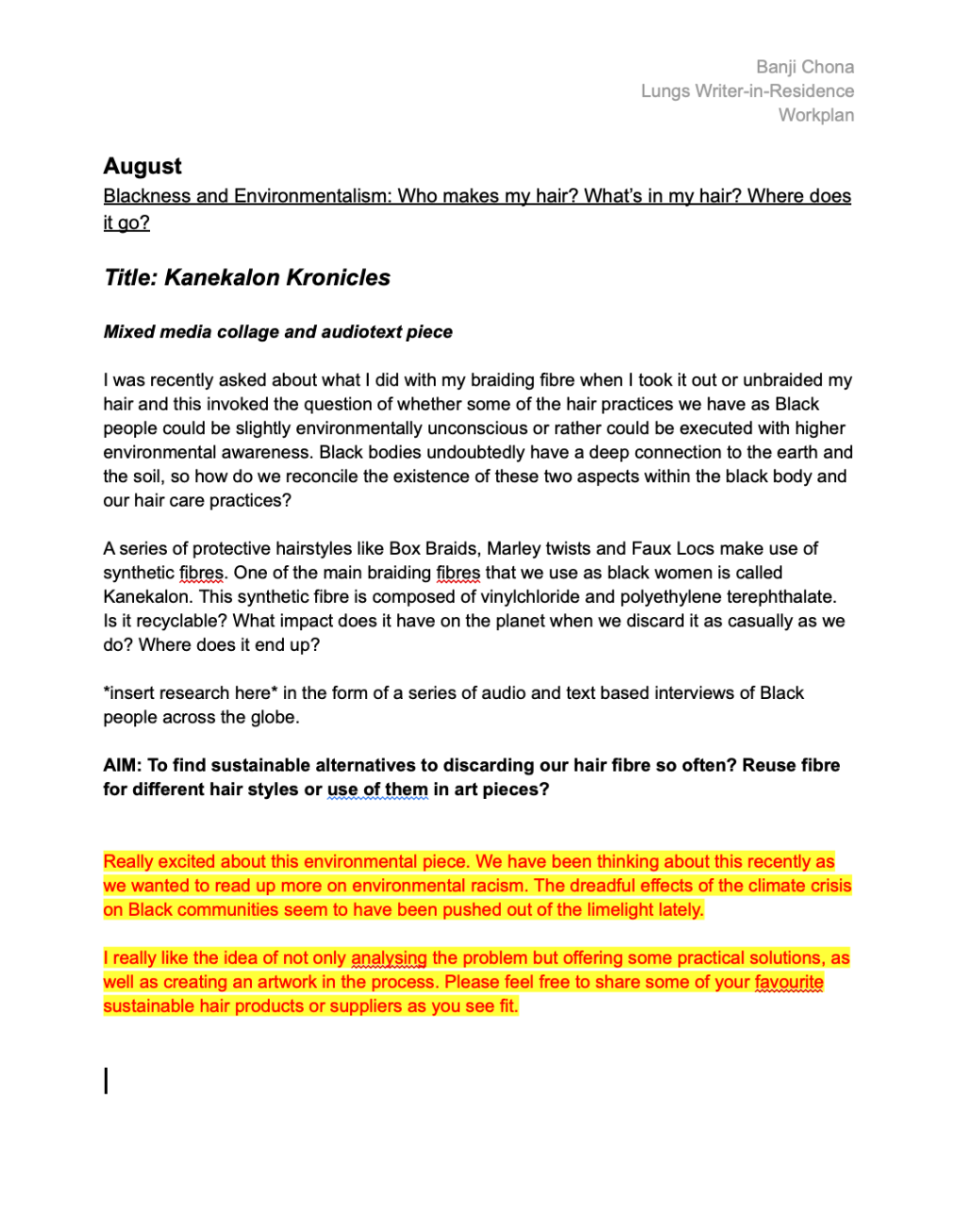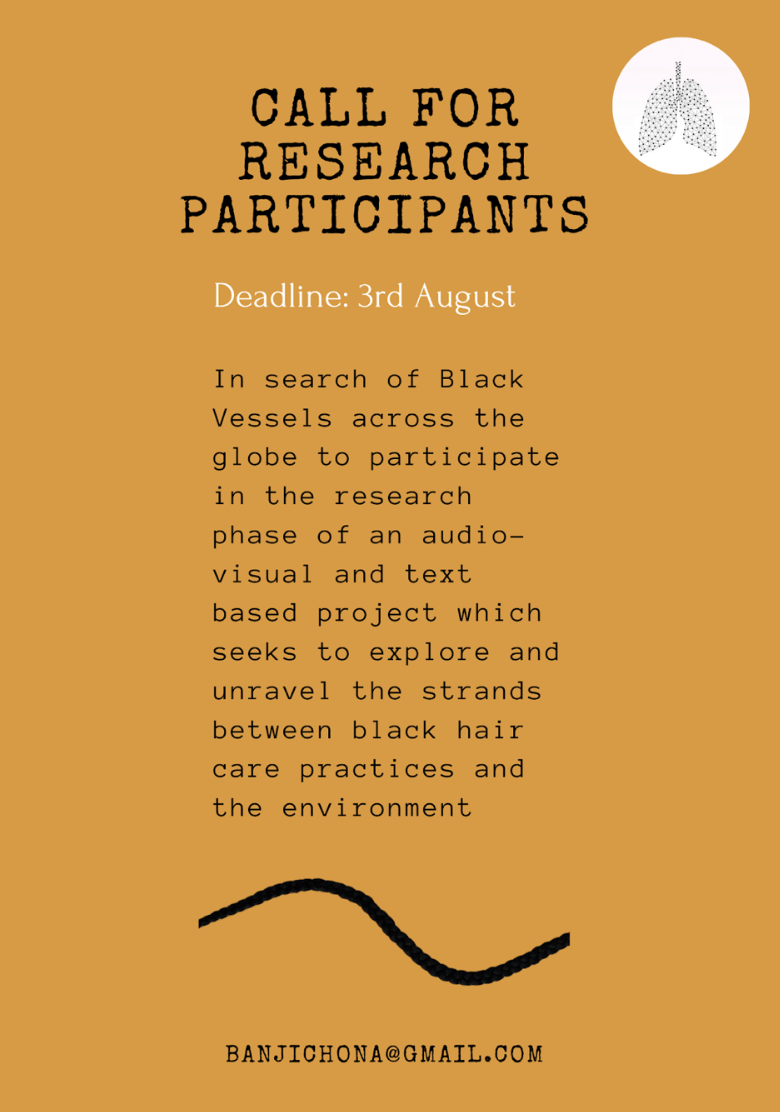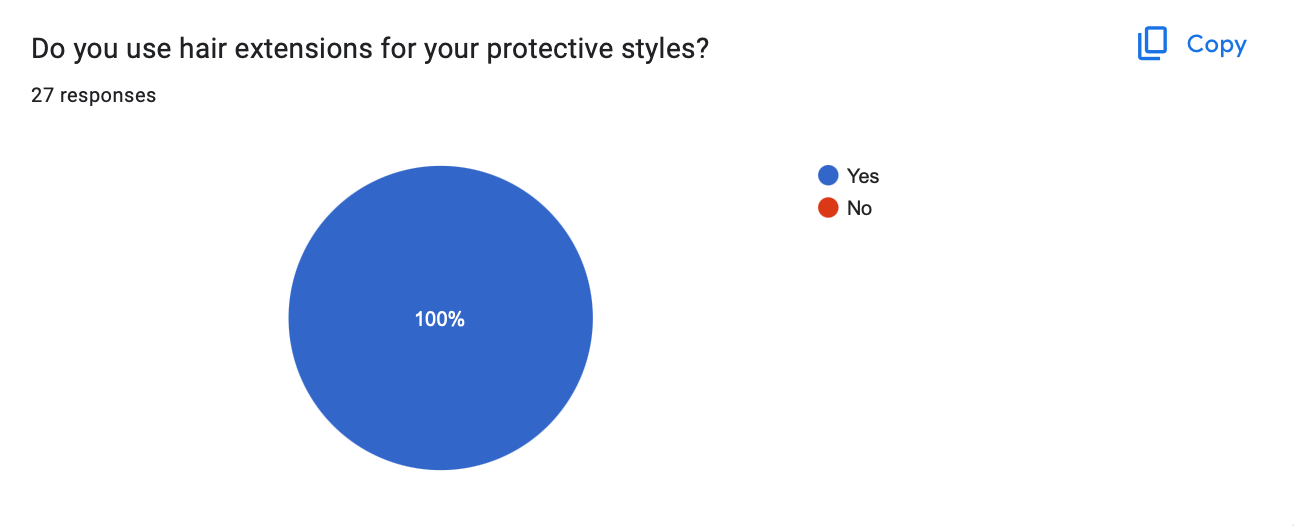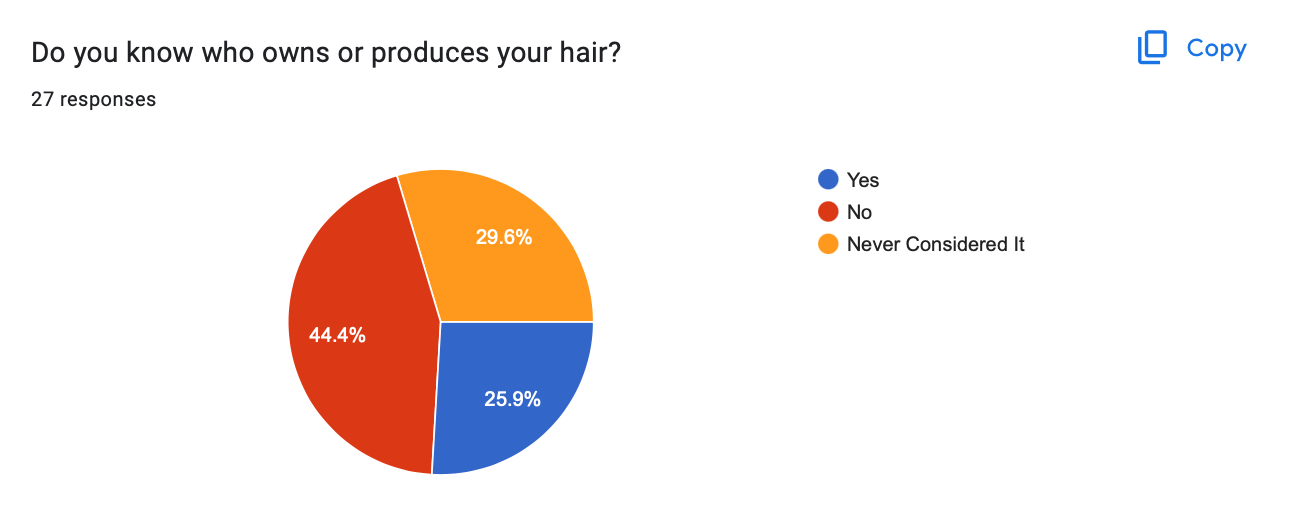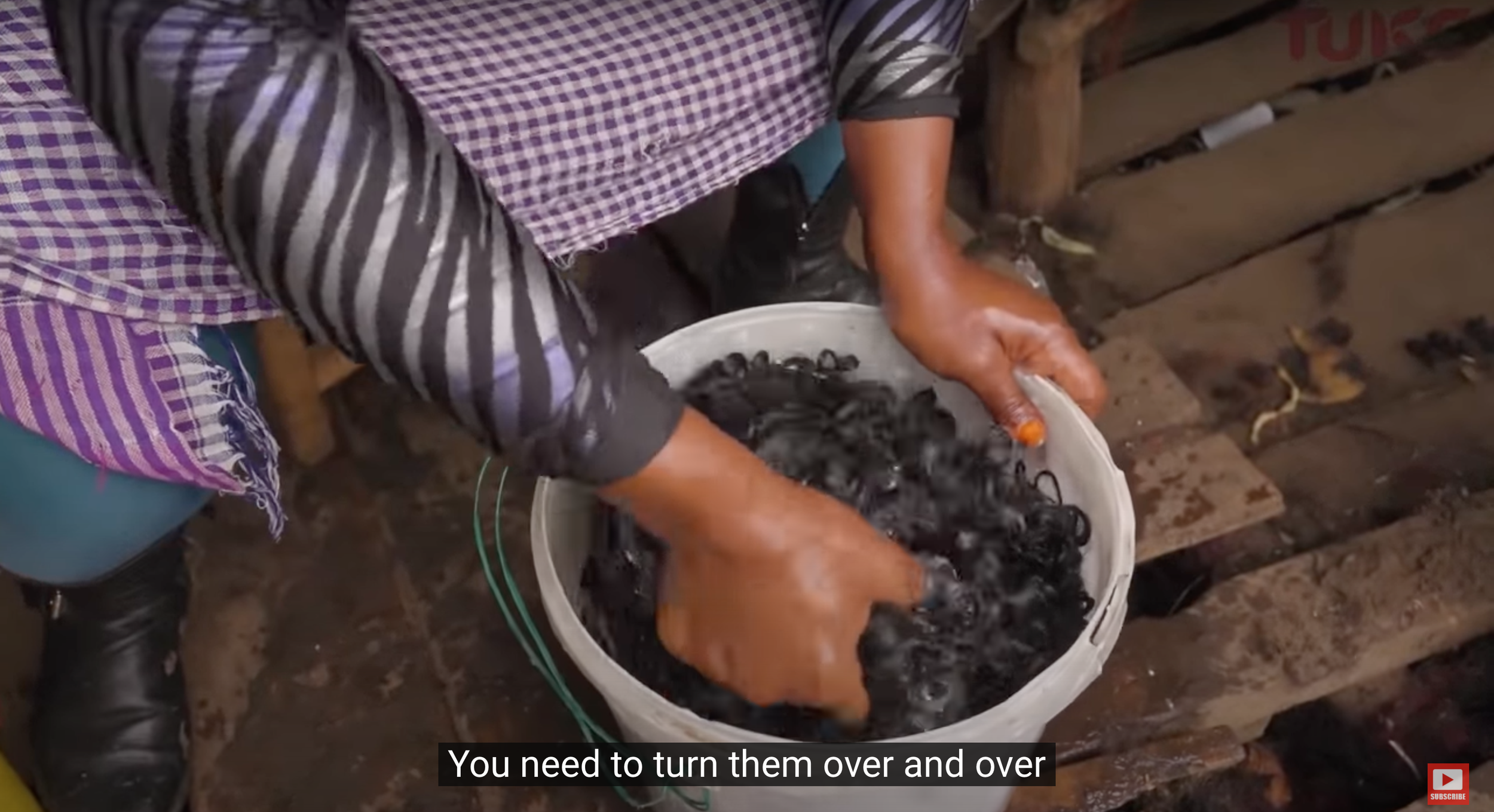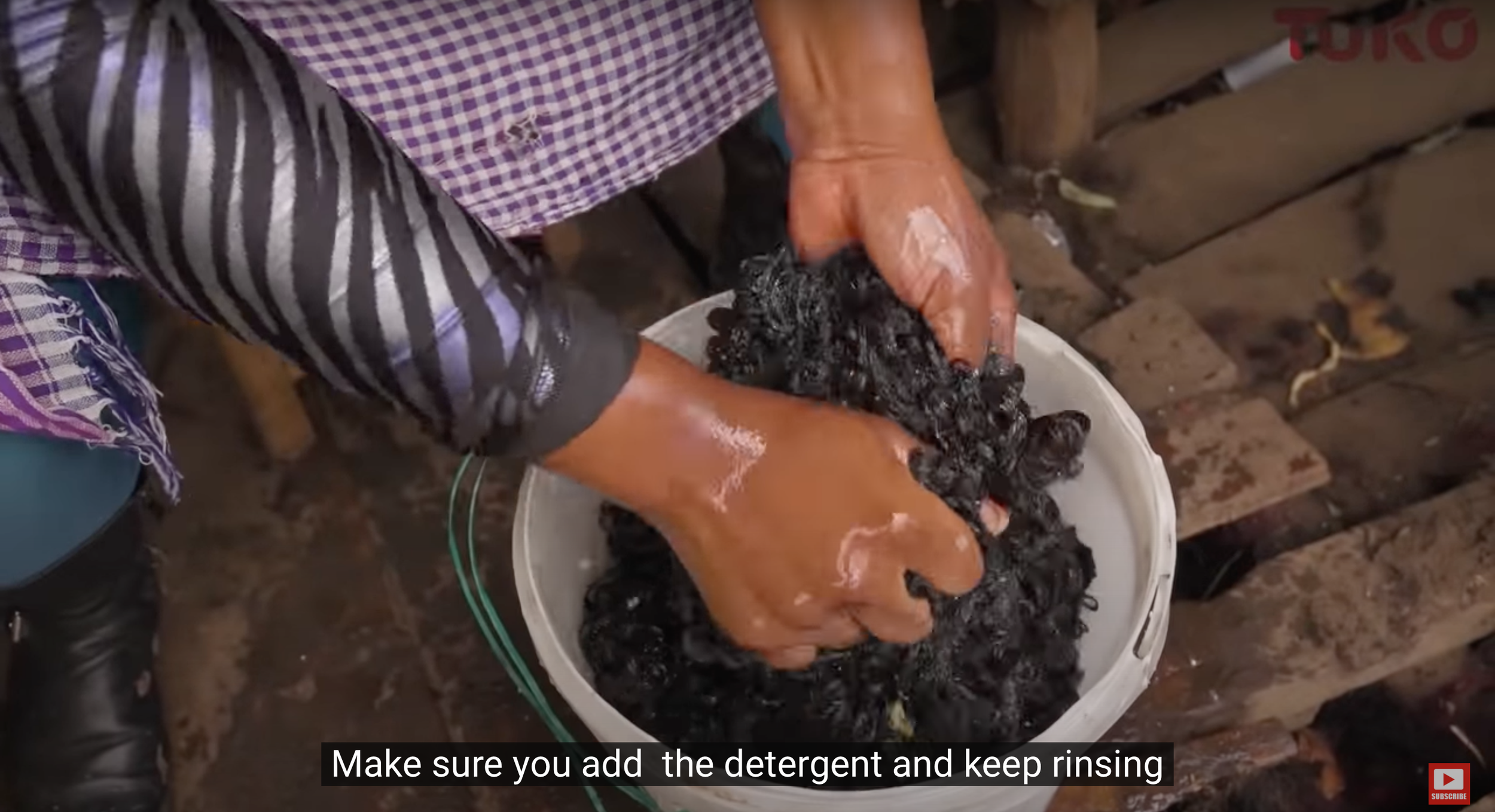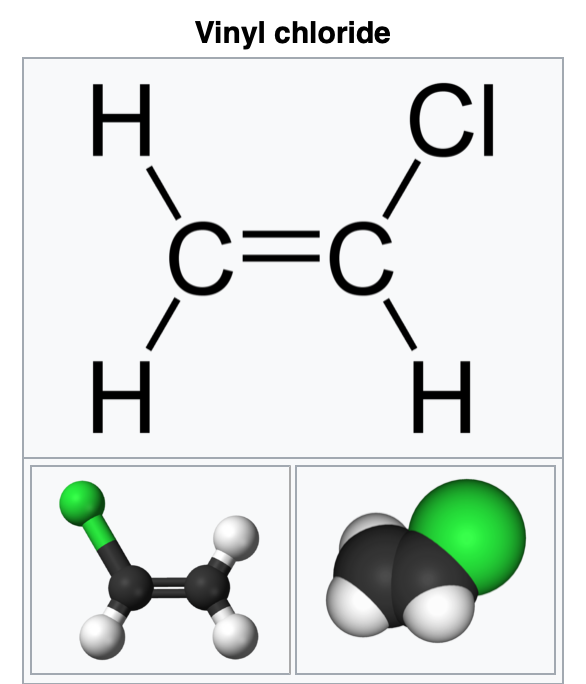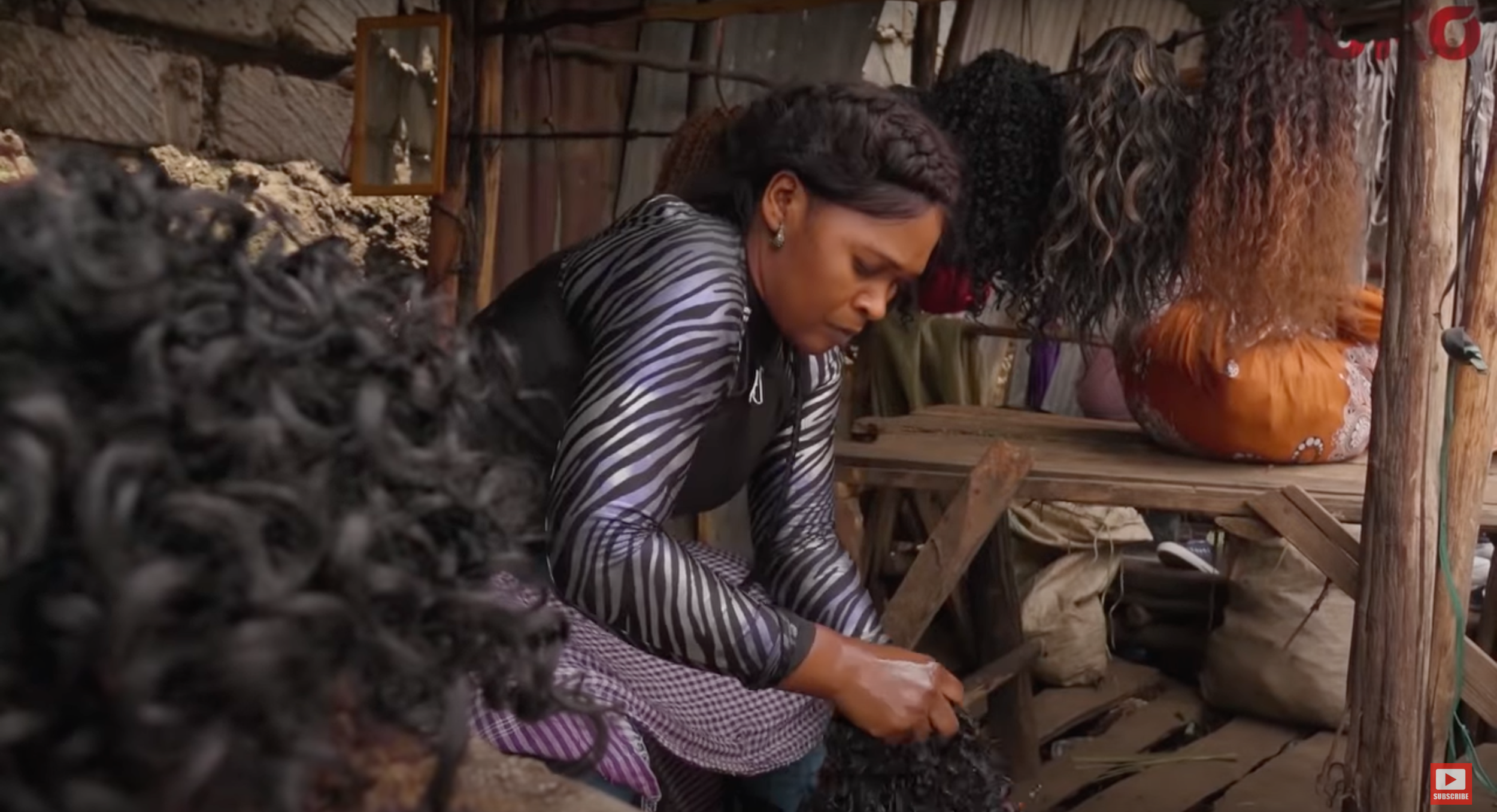Lungs Project, Writer in Residence
Black communities, as told through history and folklore across space and time, have an undoubtedly deep connection to Earth and the soil. In the eye of our current environmental storm, Kanekalon Kronicles asks: How do we reconcile the mutual existence of our roots and our hair care practices that is juxtaposed with our very essence? A number of protective hairstyles like Box Braids, Marley twists, and Faux Locs all make use of synthetic fibres. One of the main braiding fibres we, Black women, use is called Kanekalon. This synthetic fibre is composed of vinyl chloride and polyethylene terephthalate. Is Kanekalon recyclable? What is its impact on the planet when discarded as casually as we do? Where does it end up? Attempting to answer such questions, Kanekalon Kronicles was established as a virtual mpasa* curated in order to explore and unravel the strands between Black hair and the environment. Each mpasa chat is geared towards fostering critical thinking, debates, discussions, storytelling as well as looking into innovation within the Black hair community.
*Mpasa (mp-a-sa): A traditional Zambian reed mat. In traditional life, a reed mat has a number of uses: it can be used for dining, especially for women and children; it can be used as a bed that can be transported when travelling between villages. It could even be used or seen as a conveyor of information; a meeting place where stories are told and knowledge is passed on to the next generation; a place for discussion when friends and neighbours meet. In this context, the reed mat then becomes a medium where news is delivered or shared, observations are made, topics are introduced and discussed, and narratives are formed or changed and disseminated (Mpilimpli, 2020).
Participants: Emma Blake Morsi, Bristol, UK; Lani Hlalo, Manchester, UK; Carol Lathbridge, co-founder of Tiwani Heritage, London, UK; Noxi Mabuza, Johannesburg, South Africa; Reba Martin, Bristol, UK; Nicole Nduati, Nairobi, Kenya; Artise Fletcher, Washington DC, USA; Anesia Saunders, NYC, USA; Khuthalani Mlaheki, Johannesburg, South Africa
Moderator: Banji Chona, Rome, Italy
Participants: Alaba Angole, Oxford, UK; Joanna Idokogi, London, UK; Lola Cawood, co-founder of Tiwani Heritage, London, UK; Lula Musonda, Lusaka, Zambia; Sami Maseko, Johannesburg, South Africa; Kerril Ote, Nairobi, Kenya; Charity Nyirenda, Lusaka, Zambia; Samantha Siamuzwe, Lusaka, Zambia
Moderator: Banji Chona, Rome, Italy
Participants: Noxi Mabuza, Johannesburg, South Africa; Carol Lathbridge, co-founder of Tiwani Heritage, London, UK; Lola Cawood, co-founder of Tiwani Heritage, London, UK; Mukuma Kawesha, Lusaka, Zambia; Tasheni Muluwe, Basque Country, Spain
Moderator: Banji Chona, Rome, Italy
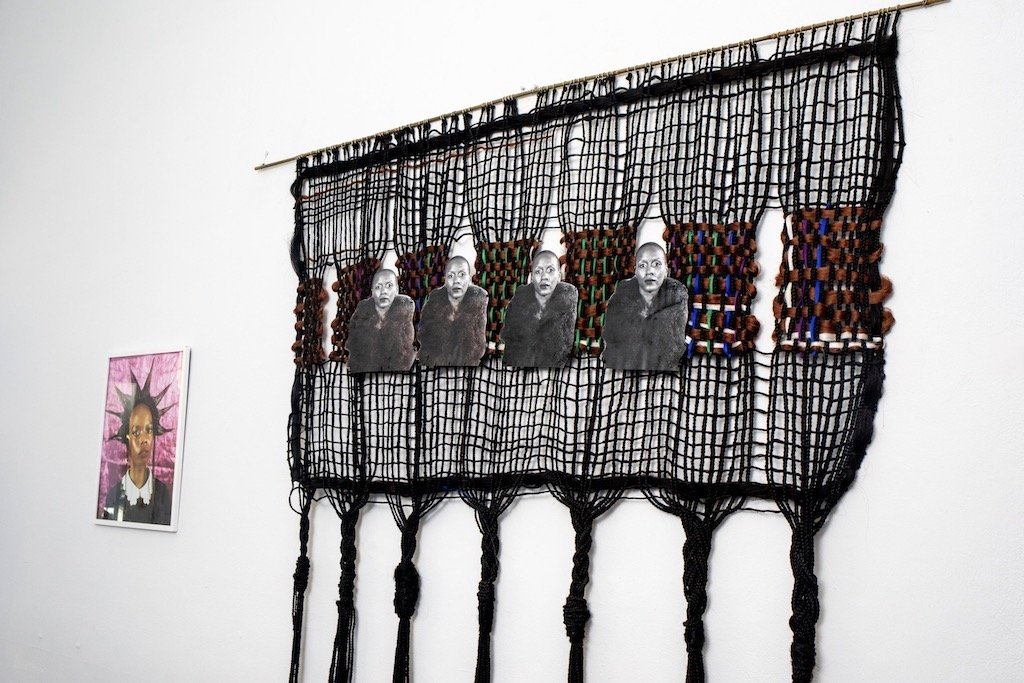
Artist Feature
Artise Fletcher Commemorative Strands
Artise Fletcher is a self-taught visual artist born and raised in Washington, DC. Fletcher’s practice explores the relationship Black women have with hair – how it affects their health, identity, self-esteem, and environment, and unpacks the significance of hair as a personal form of expression. Fletcher narrates individual stories to assert our unique nature. Through Fletcher’s use of imagery and unconventional textiles she celebrates inclusion through the narratives that unfold through her work.
Who are you, where are you and why did you join Kanekalon Conversations?
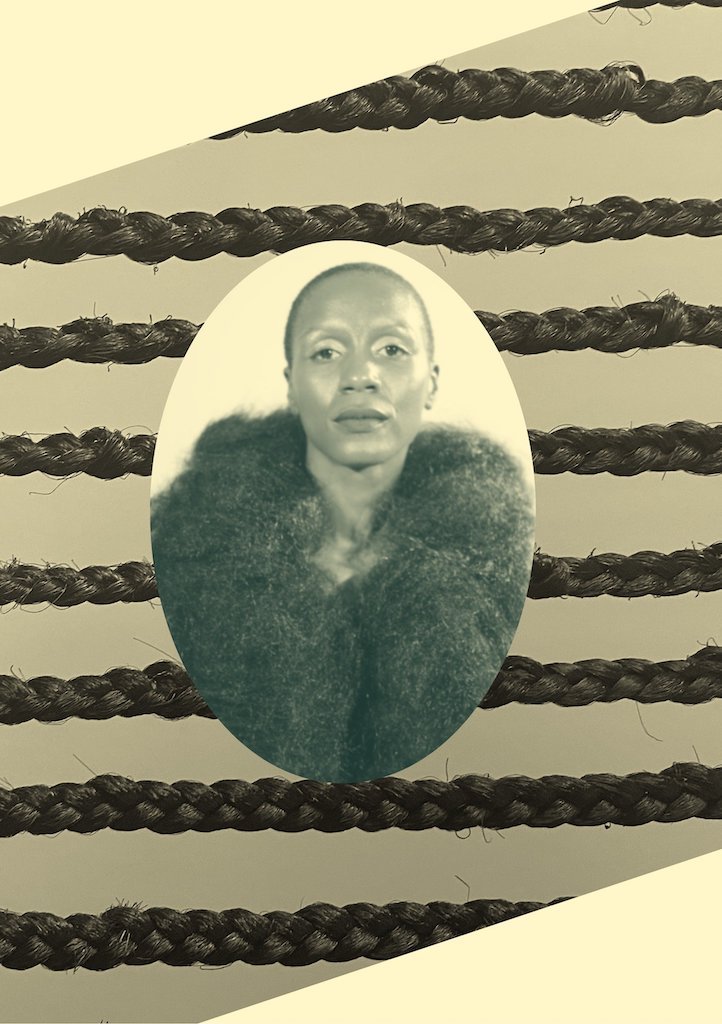
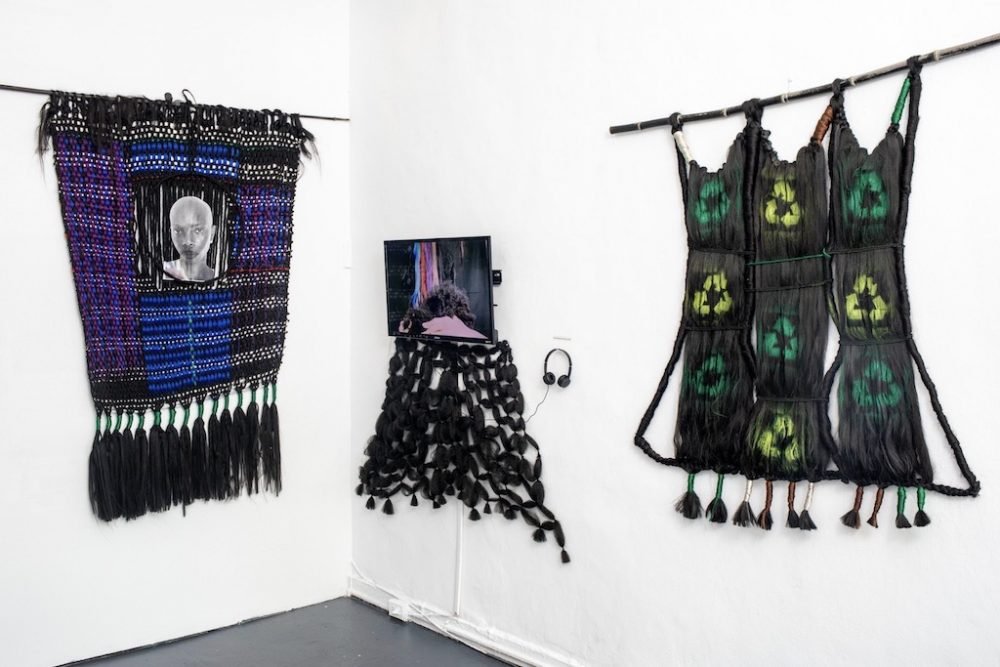
Installation Images Courtesy of Mariah Miranda

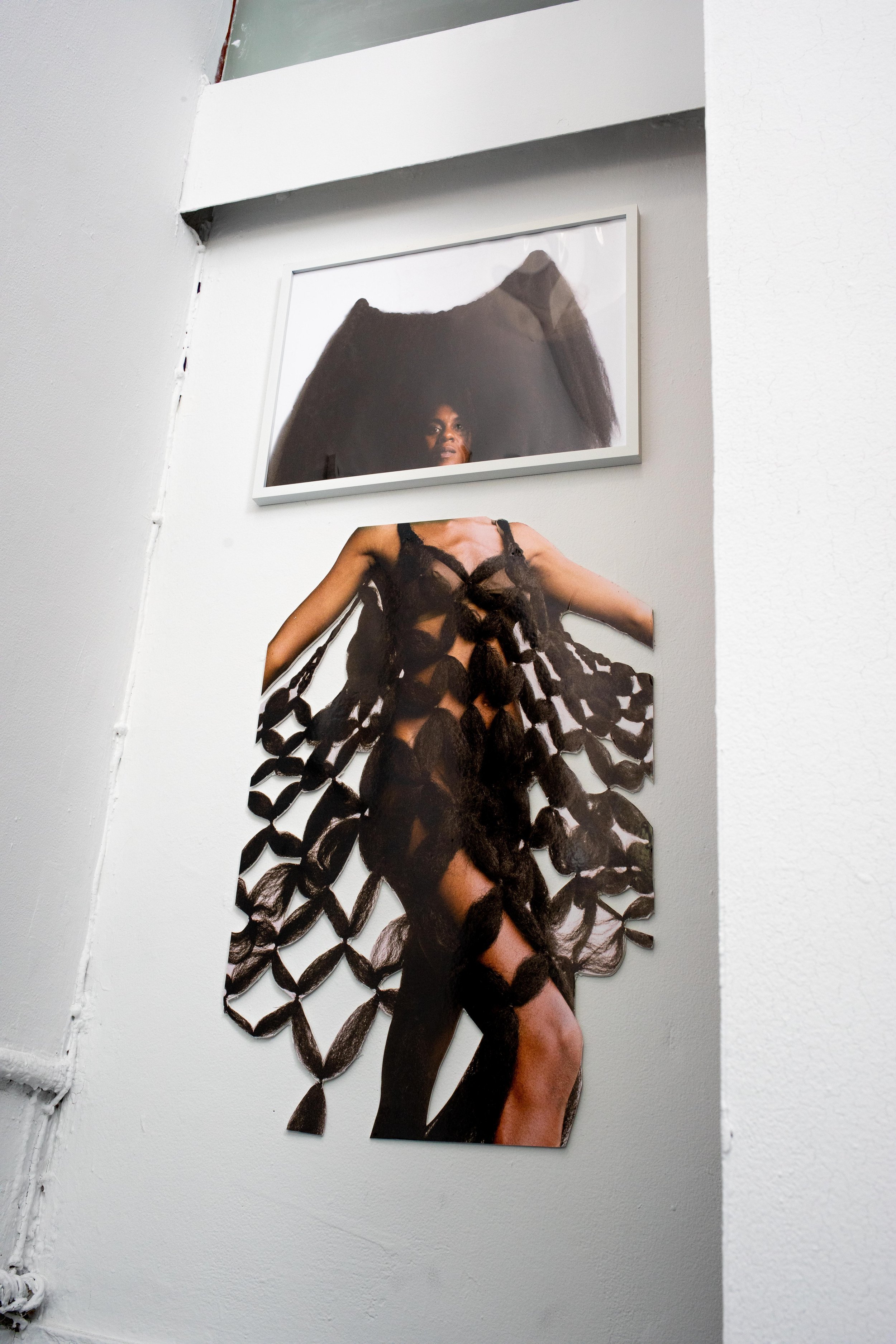
Research Frameworks
During the residency period I pitched a series of ideas to explore and write about. The first was Kanekalon Kronicles.
from lungs work plan
“I was recently asked about what I did with my braiding fibre when I took it out or unbraided my hair and this invoked the question of whether some of the hair practices we have as Black people could be slightly environmentally unconscious or rather could be executed with higher environmental awareness. Black bodies undoubtedly have a deep connection to the earth and the soil, so how do we reconcile the existence of these two aspects within the black body and our hair care practices?
*insert research here* in the form of a series of audio and text based interviews of Black people across the globe. Open Call format
AIM: To find sustainable alternatives to discarding our hair fibre so often? Reuse fibre for different hair styles or use of them in art pieces?
Research Questions
Phase One Questions:
https://forms.gle/MTJMyTmkMLFJBG1Y8
Phase Two: Kanekalon Konversations Prompts:
Why did you feel compelled to be a part of this project?
Have you ever considered braiding fibre an environmental pollutant?
Where did you interact with braiding litter?
At first thought did this change your braiding habits? If not why?
Did any of the sources in the resources list set off any particular thoughts, both positive and negative?
Samantha expressed some doubt about the recycling scheme in Kenyan Markets, can you tell us more about this?
Who’s to say that major hair producing factories in Mainland China or India aren’t using the same or similar practices.
Transparency is the production of hair products is often a massive roadblock, do you see any salve to this?
Lula mentioned a connection between ‘purchase power’ and sustainability, and by virtue more eco friendly practices- which is something I’ve spoken about before in conversations about ecoconsciousness or eco subconsciousness. Can we discuss this?
Has your view on braids changed since the beginning on this project?
What are you going to do differently?
Think Tank Resource List
Hair Manufacturers and Distributors
Kanekalon
https://www.kanekalon-hair.com/en
https://www.kaneka.co.jp/en/corporate/chronicle/
Mithu Brothers, India
https://www.youtube.com/watch?v=NgYuMNCcGVk
(Production Process)
Good Yard Hair, Mainland China
https://www.youtube.com/watch?v=mTDljX0Pq5c
Factory in Botswana
https://www.youtube.com/watch?v=jvTQbyUmTA4
Black owned factory in Nigeria
https://www.youtube.com/watch?v=wm8foE0lpYw
Weave Making Process, China
Hair extension chemical compounds
Braiding hair is a modacrylic fibre which is composed of the three compounds below
Acrylonitrile
https://en.wikipedia.org/wiki/Acrylonitrile
https://www.ewg.org/skindeep/ingredients/731007-ACRYLONITRILE/
Vinyl Chloride
https://en.wikipedia.org/wiki/Vinyl_chloride
https://www.cancer.gov/about-cancer/causes-prevention/risk/substances/vinyl-chloride
https://saferchemicals.org/get-the-facts/toxic-chemicals/vinyl-chloride/
Polyethylene Terephthalate
Sustainable Alternatives
Tiwani Heritage
https://tiwaniheritage.com/pages/recycling
EZ Braid
Recycling Hair from Landfills in Kenya
https://www.youtube.com/watch?v=5F3ZBVhGeMY
https://www.youtube.com/watch?v=tCbFl9UHQh4
Hair Extensions Made from Sisal in Kenya
https://www.dw.com/en/hair-extensions-from-natural-fibers/av-51549776
https://www.youtube.com/watch?v=Ig5xFnujPN
Sinew Hair Extension
Two Mbalantu Women (modern day Namibia. 1940s. Sinew Hair Extensions
